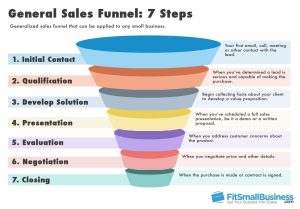
With the growing popularity of e-learning, online courses and workshops have become an effective way to share knowledge and skills with a global audience. However, creating a successful online course or workshop requires careful planning and execution. In this article, we will discuss some essential strategies to help you create a compelling and impactful online learning experience.
1. Identify Your Target Audience
Before diving into course creation, it’s crucial to identify your target audience. Understanding who you are catering to will help you tailor your content, teaching style, and marketing efforts. Conduct market research, create learner personas, and gather insights to gain a clear understanding of your audience’s needs, interests, and pain points.
2. Set Clear Learning Objectives
Always begin the course creation process by setting clear and specific learning objectives. These objectives will serve as a roadmap, guiding the development of your content and assessments. Ensure that your objectives are measurable, realistic, and relevant to your target audience. By providing clear goals, you will help your learners stay focused and motivated throughout their online learning journey.
3. Develop Engaging and Structured Content
The quality of your course content plays a significant role in the learning experience. Structure your content in a logical sequence, starting with an and progressing to more complex concepts. Use a mix of text, images, videos, and interactive elements to make the learning experience more engaging and interactive. Break down complex topics into digestible modules or lessons, and include quizzes or assignments to reinforce learning.
4. Leverage Multimedia and Interactive Elements
One of the advantages of online learning is the ability to incorporate multimedia elements. Use videos, infographics, and animations to explain complex concepts visually. Interactive elements like quizzes, discussions boards, and virtual simulations can enhance learner engagement and make the learning experience more immersive. However, be cautious not to overwhelm learners with excessive multimedia, as it may distract from the core content.
5. Provide Opportunities for Collaboration and Interaction
A successful online course encourages collaboration and interaction among learners. Incorporate discussion forums or virtual classrooms to facilitate peer-to-peer interaction and knowledge sharing. Encourage learners to ask questions, share insights, and provide feedback. Engage with your learners regularly through live webinars, Q&A sessions, or even personalized feedback. Building a community around your course helps create a supportive learning environment.
6. Offer Assessments and Feedback
Regular assessments and feedback are crucial for measuring learner progress and providing a sense of accomplishment. Incorporate quizzes, assignments, or exams to assess learner understanding. Provide detailed feedback on assessments to help learners identify their strengths and areas for improvement. Constructive feedback helps learners stay motivated and reinforces the learning process.
7. Implement a User-Friendly Learning Management System (LMS)
A user-friendly and intuitive Learning Management System (LMS) is essential for delivering your online course or workshop effectively. Choose an LMS that aligns with your course needs, offers robust features for content organization, assessment management, and learner progress tracking. A seamless user interface and navigation will enhance the learning experience and reduce learner frustrations.
8. Continuously Improve and Update Your Course
Don’t consider your course creation journey as a one-time process. Actively seek feedback from learners and make necessary improvements to enhance the overall learning experience. Stay updated with the latest trends, technologies, and methodologies in your niche to keep your course content relevant and up-to-date. Regularly update your course materials, incorporate new examples or case studies, and leverage emerging technologies to keep your course fresh and engaging.
Conclusion
Creating a successful online course or workshop requires careful planning, thoughtful content creation, and robust engagement strategies. By identifying your target audience, setting clear objectives, developing engaging content, enabling collaboration, providing assessments and feedback, selecting a suitable LMS, and continuously improving your course, you can deliver a valuable and impactful learning experience that resonates with your learners. Embrace these strategies, and embark on your journey to educate and empower individuals through the digital realm.

